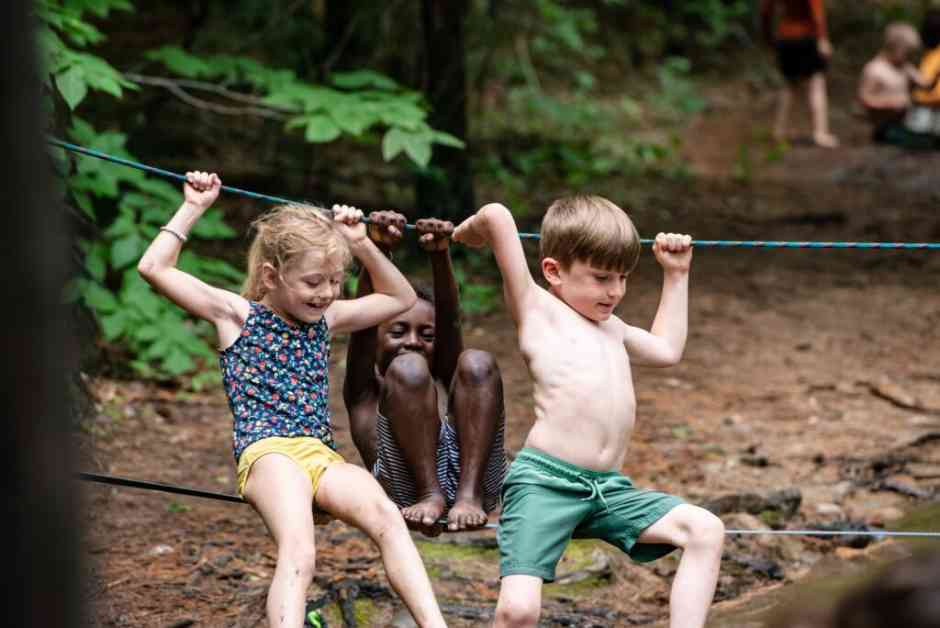Angela Hanscom, an occupational therapist, believes that children need adventurous activities to develop a healthy sense of body and mind. She emphasizes that children require more movement than our sedentary society allows, including activities that make adults gasp. Children are brought to TimberNook, where they play in the woods to heal behavioral issues and engage in activities like jumping off rocks, climbing trees, and spinning fast.
Hanscom founded TimberNook in 2013 as an experimental therapy program in her backyard, which has now expanded to three woodland sites in Maine and franchises nationally. Her philosophy of child development, centered around unrestricted outdoor play, is detailed in her book, “Balanced and Barefoot: How Unrestricted Outdoor Play Makes for Strong, Confident, and Capable Children.”
Research shows that children sit for about nine hours a day, leading to underdeveloped vestibular senses and sensory integration issues. Movement, like climbing trees and jumping off rocks, helps children develop body awareness, spatial orientation, and navigate their environments effectively. Hanscom’s outdoor therapy at TimberNook is seen as a traditional approach to child development, aiming to protect the tradition of outdoor play.
Collaborating with schools since 2017, TimberNook has seen positive impacts on academic performance through increased outdoor playtime. Schools like Laconia Christian Academy have integrated TimberNook time into their curriculum, leading to benefits like increased resilience, problem-solving skills, and joy among students. Research with the University of New Hampshire is underway to study the effects of outdoor play on school culture.
The decline in outdoor play is attributed to parental fear, overscheduling for sports, and the addictive nature of screen time. The pandemic exacerbated these issues, with children forced to spend excessive time on screens for remote learning. Despite the challenges, Hanscom remains optimistic about society’s ability to prioritize outdoor play and address the issues highlighted during the pandemic.
It is essential to recognize the importance of outdoor play in children’s development and to create opportunities for children to engage in adventurous, nature-based activities. By prioritizing movement, exploration, and play, we can support children in developing essential skills, resilience, and overall well-being. Through initiatives like TimberNook and increased outdoor playtime in schools, we can work towards creating a healthier and more balanced environment for children to thrive.
